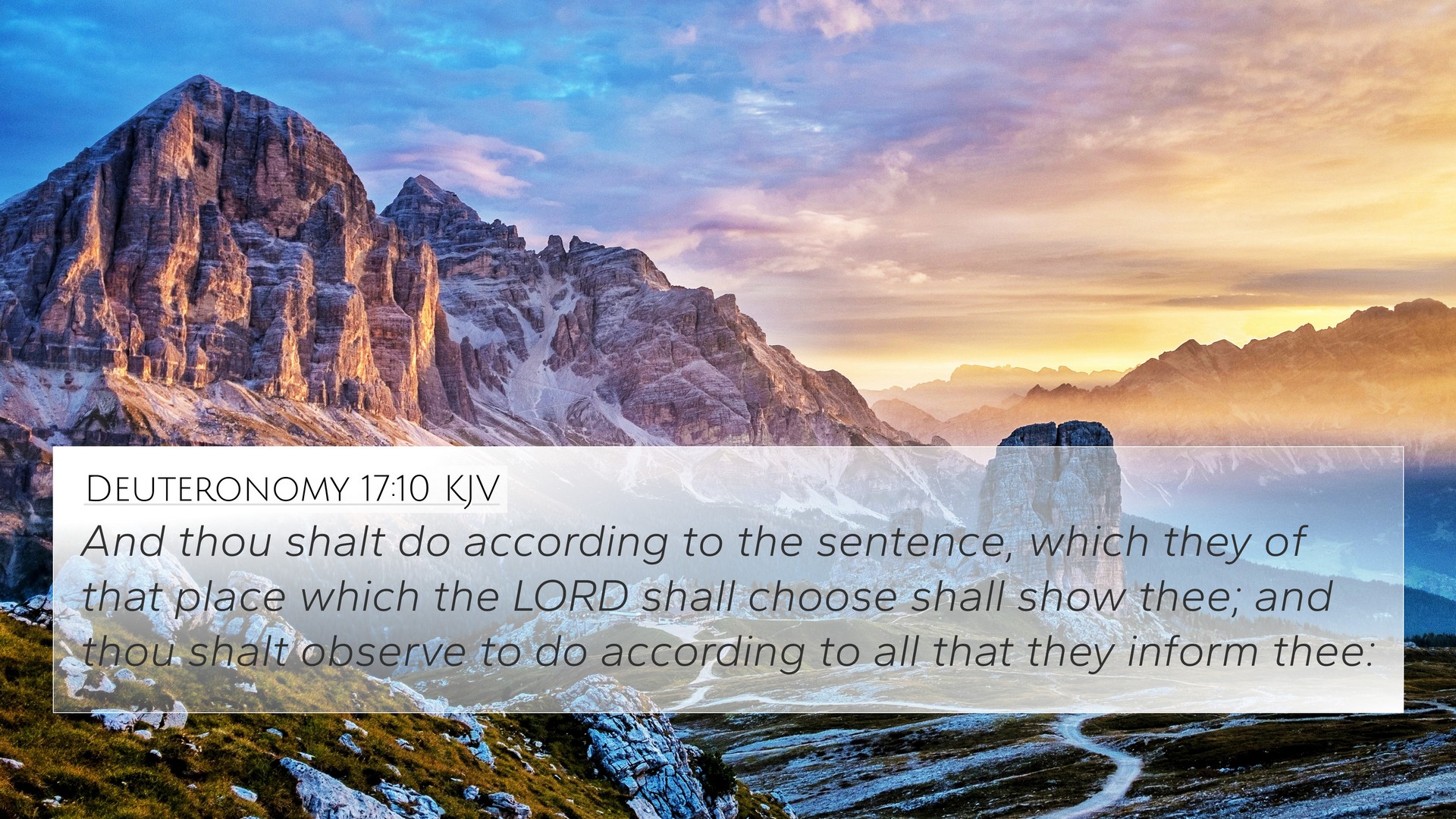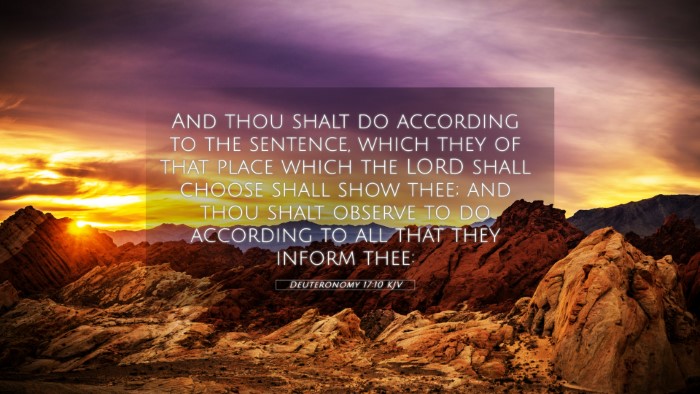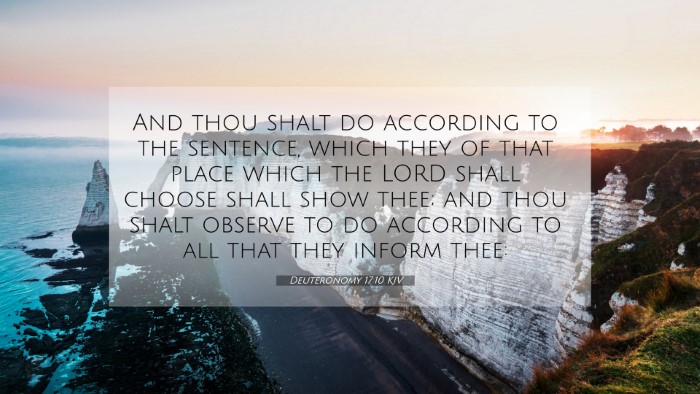Understanding Deuteronomy 17:10
Bible Verse: Deuteronomy 17:10 - "And thou shalt do according to the sentence, which they of that place which the Lord shall choose shall show thee; and thou shalt observe to do according to all that they inform thee."
This verse signifies the importance of adhering to divine authority and the guidance of the established leaders in Israel. It underscores a principle that extends to the judgment and decisions made in matters of law and governance. The focus is not merely on the act of obedience but on the recognition of a higher order and the necessity of submission to God's chosen representatives.
Commentary Insights
Drawing insights from notable public domain commentaries:
- Matthew Henry: Henry emphasizes the significance of following God’s appointed judges and acknowledges that this obedience reflects a spirit of respect towards divine ordinance. He points out that the authority given to leaders is to guide the people in accordance with God’s will.
- Albert Barnes: Barnes discusses the broader context of this directive, explaining that it assures unity and order within the community. He notes that such adherence not only promotes justice but also allows the community to thrive under God’s governance.
- Adam Clarke: Clarke elaborates on the function of these judgments as being rooted in fairness and morality. He connects this verse with the need for God’s law to be followed faithfully, illustrating that divine guidance through appointed judges maintains righteousness.
Bible Cross-References
This verse can be cross-referenced with the following passages, which help illustrate its themes:
- Exodus 18:19-22: Advice from Jethro on appointing leaders to judge the people reflects the structure set by God for governance.
- Numbers 15:40: The importance of following God’s commandments is reinforced in this passage, echoing the call for adherence to divine rules.
- Deuteronomy 16:18: Establishing judges and officers, this verse outlines the expectations for leadership to uphold God’s laws.
- Proverbs 11:14: "Where there is no guidance, a people falls, but in an abundance of counselors there is safety,” this reiterates the necessity of wise leadership.
- Isaiah 1:26: God promises to restore judges as at the first, pointing to the value of righteous leadership.
- Hebrews 13:17: “Obey your leaders and submit to them,” which connects New Testament exhortation back to Old Testament themes of authority.
- 1 Peter 2:13: This verse relates to submission to every human institution, reflecting the broader principle of respecting ordained authority.
- Romans 13:1: The scripture indicates that all authority is instituted by God, keeping the message consistent throughout the Bible.
- Acts 15:28-29: The decision-making process in early Christianity reflects the same reliance on divine guidance as established leaders consulted God’s will collectively.
- Matthew 23:2-3: Jesus affirms the authority of the scribes and Pharisees, emphasizing a deep respect for those in positions of religious authority.
Thematic Connections
The verse connects significantly with larger themes throughout the Bible, particularly in recognizing God's appointed authorities. Here are some thematic connections:
- Authority: Understanding the divine system of authority is crucial, as this principle navigates both Israel’s early society and modern application in the church and community.
- Obedience to God: This verse illustrates the call to obedience which is a consistent theme found throughout scripture.
- Judgment and Justice: The emphasis on following judicial decisions indicates God’s desire for justice to be administered fairly.
- Community Unity: The directive promotes unity among the people as they look to a common source for guidance.
Conclusion
In summary, Deuteronomy 17:10 invites believers to recognize and obey the leaders whom God has set in place. This recognition not only honors God but also fosters order and righteousness within the community. The cross-references provided above serve as critical tools for understanding how this verse interconnects with the broader biblical narrative.
By utilizing Bible verse cross-references, one can gain deeper insights into the connections between Bible verses and explore the bible verses that relate to each other. Understanding how to effectively utilize Bible concordance and study methods will greatly enhance one's grasp of scriptural themes across both testaments.
For those studying comparative Bible verse analysis or cross-referencing biblical texts, Deuteronomy 17:10 offers a profound touchstone that connects historical directives to contemporary practice, revealing the timeless nature of God’s law and authority.



